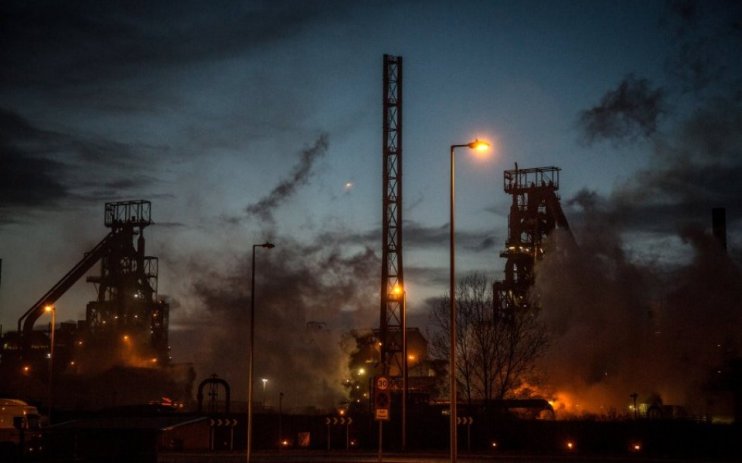Job losses mount as no-deal Brexit fears hit UK manufacturing output

The UK manufacturing sector could be sliding into recession as output remained in the red and job losses piled up in September, according to a closely-followed industry measure.
Factory activity hit 48.3 on IHS Markit’s UK Manufacturing Purchasing Managers’ Index (PMI) last month, data revealed today.
Read more: ‘Grim’ reading: Eurozone manufacturing sector hits seven-year low
While that was a four-month high, it was still below the 50 level that denotes flat growth, and Brexit stockpiling was largely responsible for the rise in purchasing.
Meanwhile new orders and employment deepened drops as IHS Markit warned of a sector recession.
“The UK manufacturing downturn continued in September, adding to signs that the sector may be sliding into recession,” IHS Markit director Rob Dobson said.
“Output, new orders and employment all fell further as rising political, trade and economic uncertainties exacerbated concerns about Brexit.”
As the 31 October Brexit departure date looms closer, some manufacturers saw more demand from customers, but Dobson said this was “dwarfed” as others shifted supply chains away from the UK.
Meanwhile the rate of redundancies rose to its highest in six and a half years ahead of a possible no-deal Brexit.
European clients made firm plans to eliminate their reliance on UK manufacturing suppliers. British firms on the other hand were split between “burning through” their stocks of materials and building supplies up again.
“This exhausting set of conditions meant companies shed jobs at a rate not seen since 2013 as redundancy packages were prepared and new staffing plans abandoned,” said Duncan Brock, group director at the Chartered Institute of Procurement & Supply.
While business optimism rose from the record low recorded in August, it was still subdued as factory bosses saw no quick recovery from uncertain economic factors.
“The shroud of uncertainty also weighed on manufacturers’ confidence, which remained at one of its lowest ebbs in the survey history,” Dobson warned.
Challenges included the uncertainty of whether the UK will secure a Brexit deal and ongoing global trade tensions amid a worldwide economic slowdown.
Read more: Global economy must prepare itself for a slowdown, warns new IMF chief
“These headwinds all ensure that manufacturing will likely remain a drag on UK economic growth during the months ahead,” Dobson predicted.
Brock added: “Brexit combined with a slowdown in the global economy, rising trade tensions and potential oil supply difficulties in the Middle East, means we’re likely to see a chilling end to the last quarter as Halloween approaches.”
The data came as the Eurozone’s manufacturing industry also slipped, with Germany leading a deepening downturn as factories’ output dropped alarmingly.
“The big picture is that manufacturing is on track to contract for a second consecutive quarter, and a meaningful recovery is unlikely given the ongoing struggles of global manufacturing,” Capital Economics UK economist Thomas Pugh said.
“If Brexit is delayed again the stocks of purchases balance could fall back in October and November.
“However, given that the services sector is typically unfazed by contractions in manufacturing, we think that the UK will avoid recession unless there is a no-deal Brexit.”
Read more: Deutsche Bank boss warns central banks lack tools to prevent economic crisis
Howard Archer, chief economic adviser to the EY Item Club, added that a no-deal Brexit on Halloween could throw into doubt the ability of manufacturers to meet future demand.
“If the UK does ultimately leave the EU with a deal at the end of October, manufacturers will hope that this reduces uncertainty, boosts confidence and lifts business demand for capital goods as well as consumer demand for big-ticket manufactured goods,” he added.